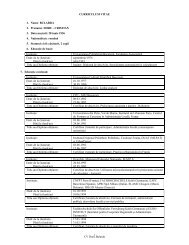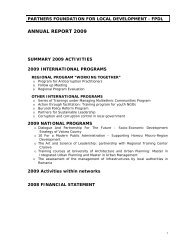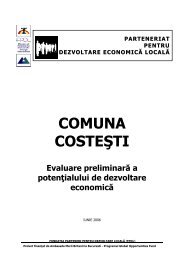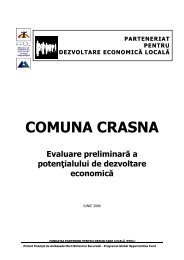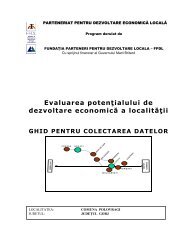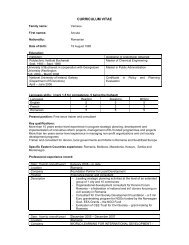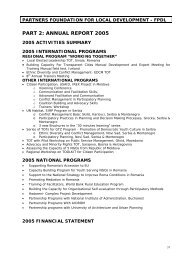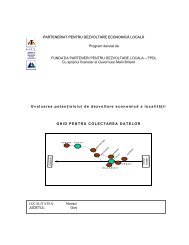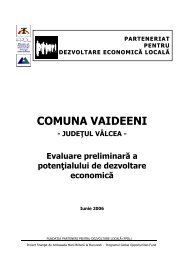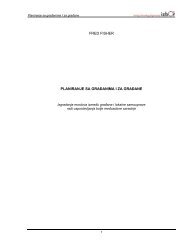Organizational Development: A Manual for Managers and ... - FPDL
Organizational Development: A Manual for Managers and ... - FPDL
Organizational Development: A Manual for Managers and ... - FPDL
Create successful ePaper yourself
Turn your PDF publications into a flip-book with our unique Google optimized e-Paper software.
Chapter 1.6 Interaction <strong>and</strong> Cooperation<br />
Rationality of correlated actions<br />
Each individual organism aims at maximizing its chances <strong>for</strong> survival <strong>and</strong> tends to behave<br />
rationally starting from its perception of what the situation is, <strong>and</strong> its notion of how it will or could<br />
develop in the future. In a more or less stable environment, the situation changes in a predictable -<br />
to a certain extent - <strong>and</strong> controllable - to a certain extent - manner. Increasing the level of<br />
predictability, as well as level of controllability, would increase the chances <strong>for</strong> survival.<br />
The results <strong>for</strong> an organism of certain behavioural choices may also depend on the changing state<br />
of the environment. This environment may be indifferent to an organism, not depending on it <strong>and</strong><br />
not fully predictable: (How cold will the weather be in April?, What will be the dollar exchange rate<br />
in relation to the Euro by the end of next year?). Thus, any choice of behaviour by an organism in<br />
this case will encompass risk, because it can be based on assumptions only. Such one-way<br />
interrelations between organisms, which tend to determine the future, but exist in an unpredictable<br />
environment that does not care about an organism’s worries, were called ‘games with the nature’,<br />
a bit like unrequited love.<br />
Some elements of the environment may be other organisms. Then the rationality of the possible<br />
behaviour of the one may also depend on the future behaviour of other organisms that strive <strong>for</strong><br />
their own objectives. In this case, the objectives of two or more interdependent subjects are<br />
incompatible; one may achieve its goals at the expense of other subjects only (as in a gambling<br />
game) – such interrelations were called ‘antagonistic games’ (e.g. one saves as much as another<br />
loses, one accepts more risk thus creating less risk <strong>for</strong> another, etc.).<br />
Objectives of interdependent subjects are not necessarily opposite or antagonistic. They may not<br />
even be strictly interrelated, but the possibility to satisfy one’s own interests may be somehow<br />
different depending on what method <strong>for</strong> meeting his objectives the other subject has chosen. For<br />
example, when someone wants to sleep in the late evening while the other one wants to listen to<br />
music at the same time <strong>and</strong> in the same room - it looks purely antagonistic at first glance.<br />
However, the one who wants to sleep may have no objection to the other listening using<br />
headphones; there would be no conflict of interests in that case. Thus, if the music lover would<br />
agree on listening with good headphones (<strong>and</strong> enjoy even better sound) – then it would be okay<br />
with the one who wants to sleep. But in this case, he may be obliged to buy headphones <strong>for</strong> his<br />
neighbour, providing the neighbour will agree not to use loudspeakers after a certain time. Or they<br />
could agree on sharing the cost of purchasing new headphones, which could be to their mutual<br />
benefit. This kind of game we call business games. Interdependent subjects do not necessary<br />
61



